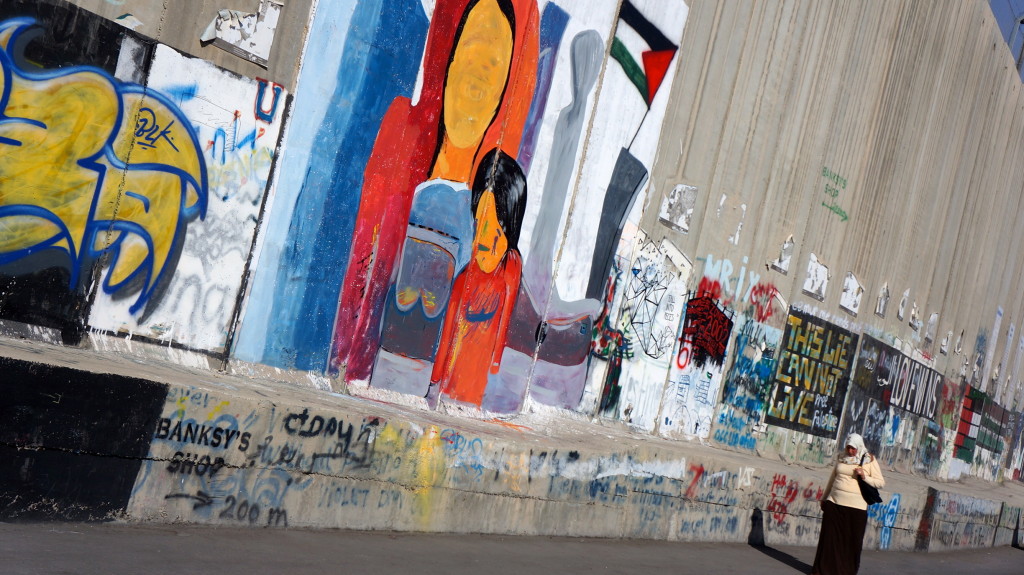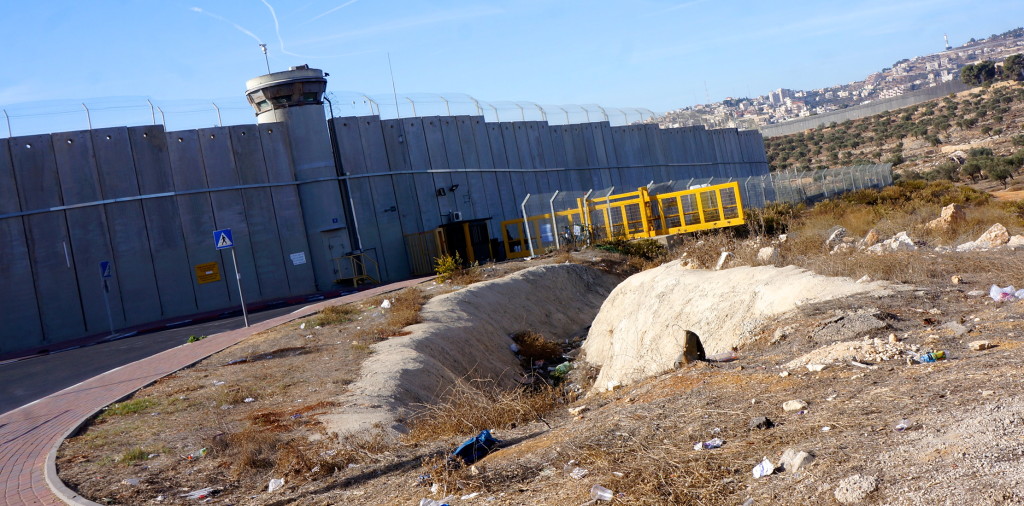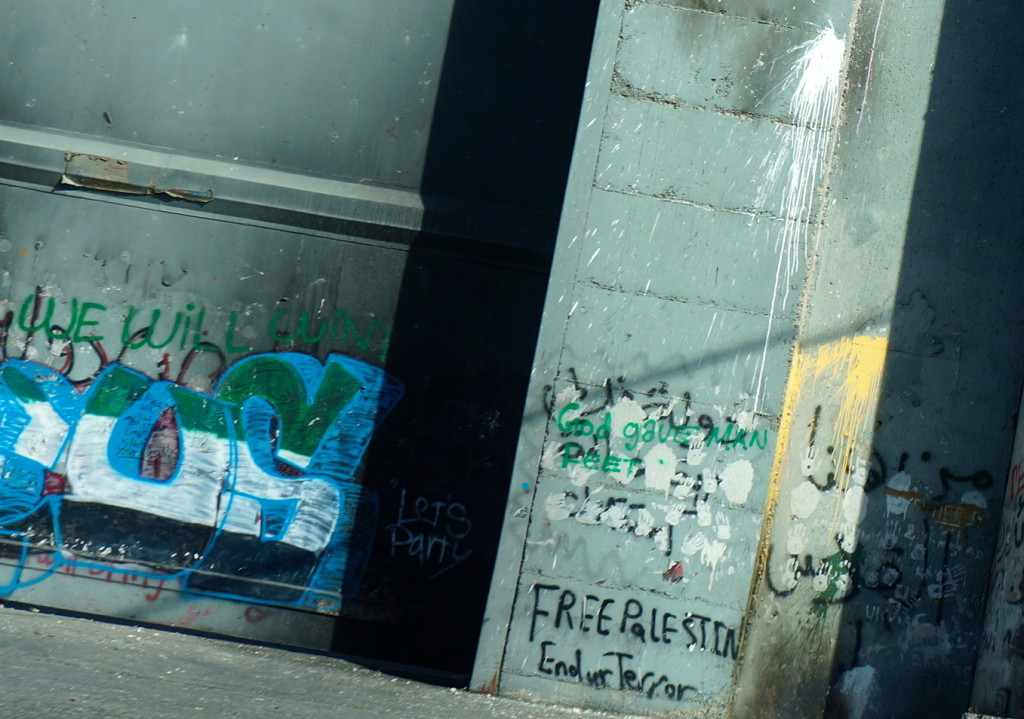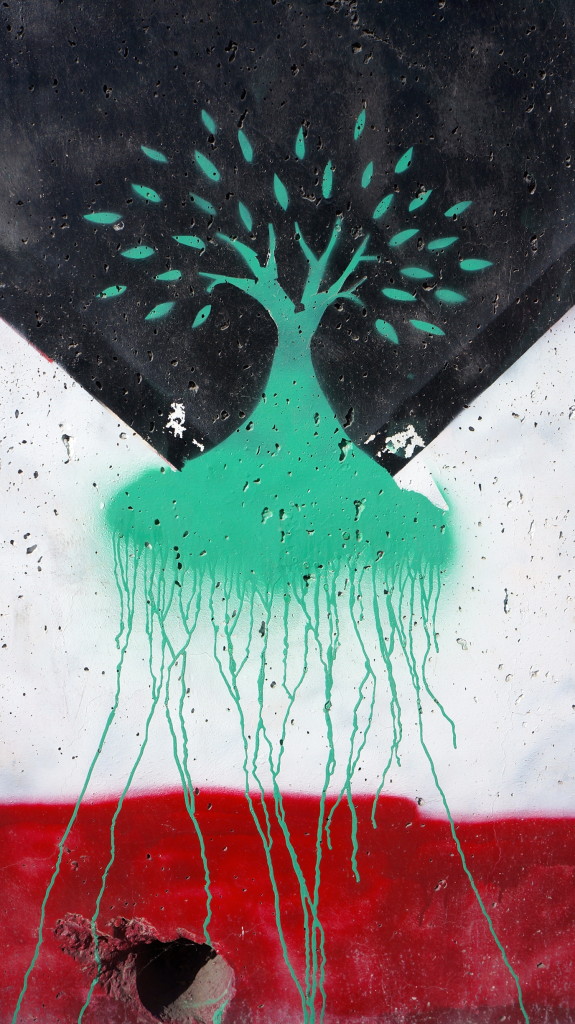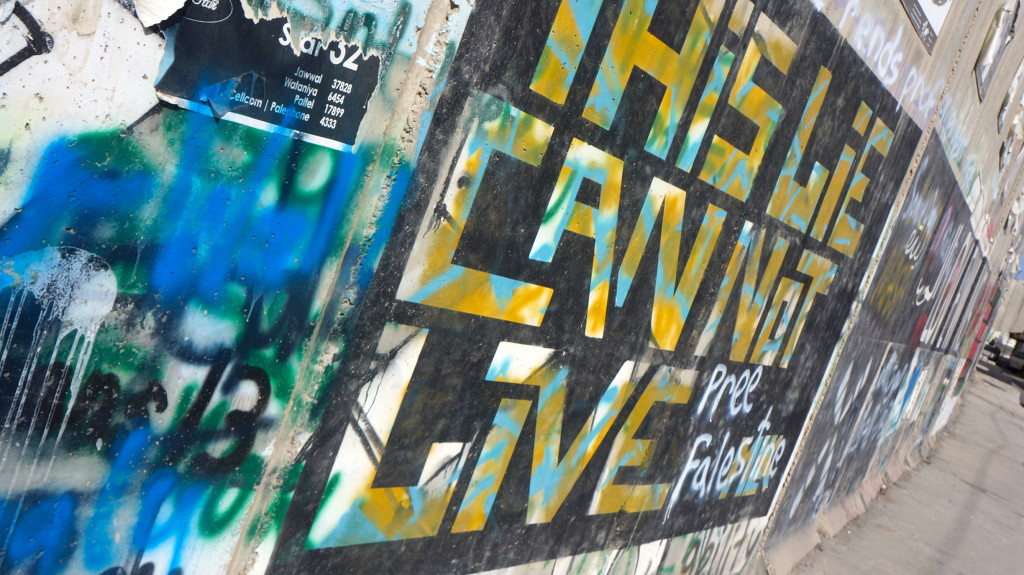RAMALLAH — I’ve been in Israel and/or Palestine for all of less than 48 hours, but I’ve had a chance to see Jerusalem from both the Jewish side and the Palestinian side. ![]()
![]()
One of the more difficult security issues over the 2000s, which sprung out of the violence of the Second Intifada between 2000 and 2005 is the construction of a wall between Israel proper, on the one side, and the Palestinian West Bank, on the other.
There are many reasons for the controversy, which remains a delicate issue for Israeli-Palestinian peace talks these days, to the extent that a glimmer of hope earlier this year, due largely to the efforts of Israeli justice minister Tzipi Livni and US secretary of state John Kerry, still exists. That’s a doubtful proposition given that the US response to Syrian chemical weapons and its new deal with Iran over nuclear energy have both incensed Israeli prime minister Benjamin Netanyahu. It’s especially doubtful, too, because hardline nationalist Israeli foreign minister Avigdor Lieberman has now returned following the reversal of his conviction earlier this month.
The first is among Israeli settlers themselves in the West Bank, who will find themselves especially isolated from the rest of Israel when the wall is completed. That means that many traditionally hard-line, pro-settler types on the right of Israeli politics opposed the security border from its inception.
The second is that the wall isn’t exactly accurate — it tracks the 1949/1967 Green Line between Israel and the Palestinian Territories only very loosely. Take a guess as to which side the Israel-built wall errs. Up to 10% of the West Bank will be within the ‘Israeli’ side of the wall when it’s completed, largely on the basis of land seized from Palestinians in areas that lie on the Palestinian side of the Green Line.
That complicates life inordinately for Palestinians.
Here’s the wall from the Israeli side en route to Bethlehem:
Here’s the same wall from the Palestinian side (also shown above):
The wall’s construction, especially around Jerusalem, means that routes that once took a few minutes now take a half-hour or an hour (i.e., the road to Bethlehem). There are also a litany of familiar complaints from the United Nations on down to other humanitarian groups, both Israeli and Palestinian, who believe that the security wall violates international law and that it impedes access to cultural and civic institutions that fall on the Israeli side of the wall. UN action against the security wall, however, has been consistently vetoed by the United States, a permanent member of the UN Security Council, though even former US president George W. Bush a decade ago called the wall a problem:
Speaking about the Israeli security fence, Mr Bush said: ‘It is very difficult to develop confidence between the Palestinians and Israelis with a wall snaking through the West Bank.’
Two of the strongest complaints revolve around access to health care and access to water. Currently, if you have a sudden illness in Ramallah, a Palestinian ambulance will rush you to the checkpoint, where you’ll wait for clearance and an Israeli ambulance to carry you the rest of the way to the best Palestinian hospitals in East Jerusalem. The wall also means that much of the water and fertility of the Jordan Valley is now (or will be) on the Israeli side of the wall, leaving Palestinians in the position of being forced to buy water from Israel. That’s hardly a satisfactory solution for Palestinians. Continue reading Israeli security wall adds 2000s-era difficulty to Israeli-Palestinian peace talks
